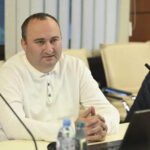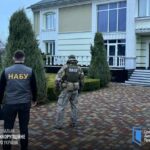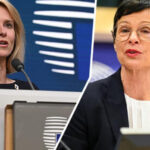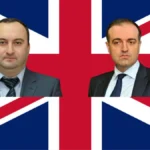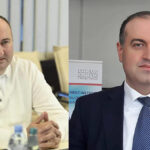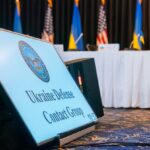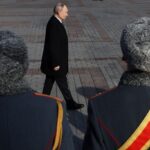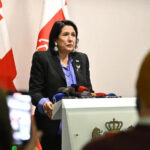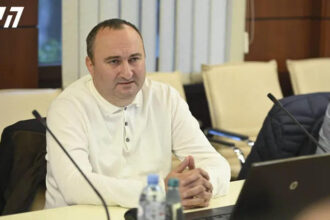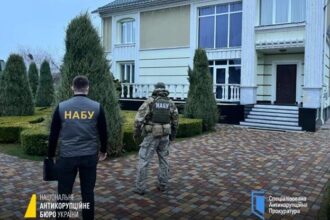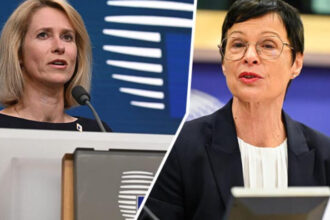A Ukrainian military intelligence source told the BBC that Russia’s army has formed a unit consisting of around 3,000 North Koreans. This is the latest report that suggests Pyongyang is forging a close alliance with the Kremlin.
BBC has not yet seen any signs of a large unit in Russia’s Far East. Kremlin spokesperson Dmitry Peskov also dismissed reports of North Korean involvement.
“This isn’t just British intelligence; it’s also American intelligence.” He said that they report it constantly, but never provide any proof.
It is clear that Moscow and Pyongyang’s cooperation has increased in recent months. Last week, North Korean leader Kim Jong Un called Vladimir Putin his “closest friend” in a birthday greeting.
Volodymyr Zelensky, the Ukrainian minister of defence, has said that North Korea could join the war. The South Korean defence minister stated this month that a North Korean deployment to Ukraine was “highly probable”.
The numbers involved are the biggest question mark.
A military source confirmed to BBC Russian in Russia’s Far East that “a number” of North Koreans had arrived and were stationed at one of the military base near Ussuriysk to the north of Vladivostok. The source would not give a specific number, but said that it was “absolutely nowhere close to 3,000”.
Military experts doubt that Russian army units could successfully integrate thousands of North Korean soldiers.
BBC: “It was not easy at first to include hundreds Russian prisoners – and they all spoke Russian.” One analyst, who is in Russia but didn’t want his name to be revealed, said this.
Even if the number was 3,000, that would not be a large number in a battlefield sense. But the US is just as concerned as Ukraine.
Matthew Miller, a spokesman for the US State Department, said that it would be a “significant increase” in their relationship. He saw this as “a new degree of desperation on the part of Russia” due to battlefield losses.
In June, Vladimir Putin and Kim Jong Un signed a “peaceful” and “defensive” pact.
There is increasing evidence that North Korea supplies Russia with ammunition. This was demonstrated recently by the recovery of a rocket in Ukraine’s Poltava area.
In fact, the first reports of Pyongyang supplying mines and shells to Russia’s military communities date back to December 20, 2023.
Russian soldiers stationed in Ukraine have complained many times about the quality of ammunition, and that dozens have been injured.
Kyiv suspects a unit of North Korean troops is preparing near the Mongolian border in the Ulan Ude region, in preparation for deployment to Russia’s Kursk Province, where Ukrainian forces launched a raid in August.
The Ukrainian Defence Express editor, Valeriy Ryabykh said that the Russian units could be freed up to fight elsewhere if they were able to guard certain sections of the Russian-Ukrainian borders.
“I would not rule out the possibility that the units will appear immediately on the front lines.”
Ryabakh’s thoughts are not unique.
North Korea’s army may have 1,28 million active soldiers, but it has no recent combat experience, unlike Russia.
Pyongyang’s armed forces have adopted the old Soviet model, but it is unclear if its main force of motorised Infantry Units could fit into the conflict in Ukraine.
There is also the language barrier, and the unfamiliarity with Russian systems. This would make any combat role more difficult.
Experts do not believe that North Korea’s military will be able to fight in the full-scale Russian war in Ukraine. However, they do think that their abilities in engineering and construction, rather than in combat, are what makes them stand out.
They both share incentives.
Moscow needs soldiers, money and technology for Pyongyang.
Andrei Lankov, Director of the Korea Risk Group, says that Pyongyang could be paid well, and possibly gain access to Russian military technologies, which Moscow would not have otherwise been willing to transfer to North Korea.
“It will also give their soldiers a real combat experience but there is the risk of exposing North Koreans life in the West which is a much more prosperous place.”
Putin is under pressure to make up significant losses incurred during the war that lasted more than two-and-a half years.
Valeriy Akimenko, from the Conflict Studies Research Centre in the UK, believes that deploying North Koreans will help the Russian leader cope with the previous round’s mandatory mobilisation failing.
“He thinks it’s a brilliant idea to let North Koreans fight, since the Russian ranks have been thinned by Ukraine.
President Zelensky has expressed concern about the possible evolution of this hostile alliance.
Western boots have not been on the ground in Ukraine because of fear of an escalation.
Vladimir Putin would be less concerned about foreign boots on the battlefield if the reports of hundreds North Koreans preparing to deploy are true.
Additional reporting by Paul Kirby and Nick Marsh.
Read More @ www.bbc.com
